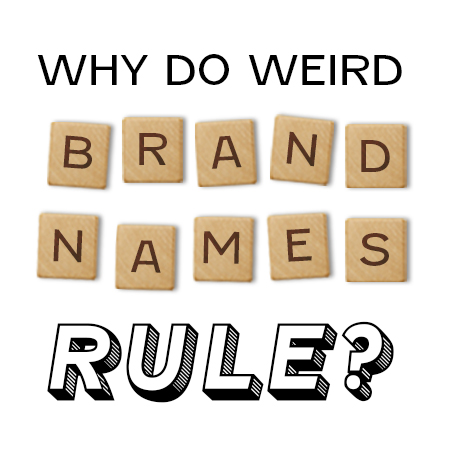Why Weird Names Like “Hulu” Work
Did you ever wonder why there are so many weird brand names? What’s up with names like Skullcandy and Urban Decay? Why don’t Skype or Zappos make any sense?
So let’s look at Hulu as an example. Why? It answers the questions any business needs to ask about a brand name.
Does it feel good to say?
Names definitely have a mouth feel. Say “Hulu.” Then say “NBC Direct.” One makes you smile, the other doesn’t. Zappos is another brand name that is kind of fun to say. It sounds cool to work at Zappos. It’s not cool to work a Designer Shoe Warehouse.
Are the domain and social media handles available? Is it search engine friendly?
This is the number one reason weird brand names rule. Before Hulu was launched, an internet search for “Hulu” harvested a bunch of nothing. The term was 100% own-able across platforms.
Does it work in practical language?
Hulu is of course a noun, but it’s clearly primed for use as a verb. “You don’t need cable to watch The Walking Dead, just hulu it.” While you’re at it, skype me.
Is it memorable?
“Hulu” may be a little slow on the learning curve, but it couldn’t be stronger on stickiness. A brand name that sounds kind of quirky is memorable.
Does it relate descriptively?
Nope, (hey we didn’t say it was the perfect name). But it does the next best thing—it has a deeper meaning that perfectly encapsulates the spirit of the service. Here’s the company story:
“In Mandarin, Hulu has two interesting meanings, each highly relevant to our mission. The primary meaning interested us because it is used in an ancient Chinese proverb that describes the Hulu as the holder of precious things. It literally translates to “gourd,” and in ancient times, the Hulu was hollowed out and used to hold precious things. The secondary meaning is “interactive recording.” We saw both definitions as appropriate bookends and highly relevant to the mission of Hulu.”
That’s obscure, but it doesn’t matter. Hulu is such a winning name in practical application that the meaning is happily unimportant.





